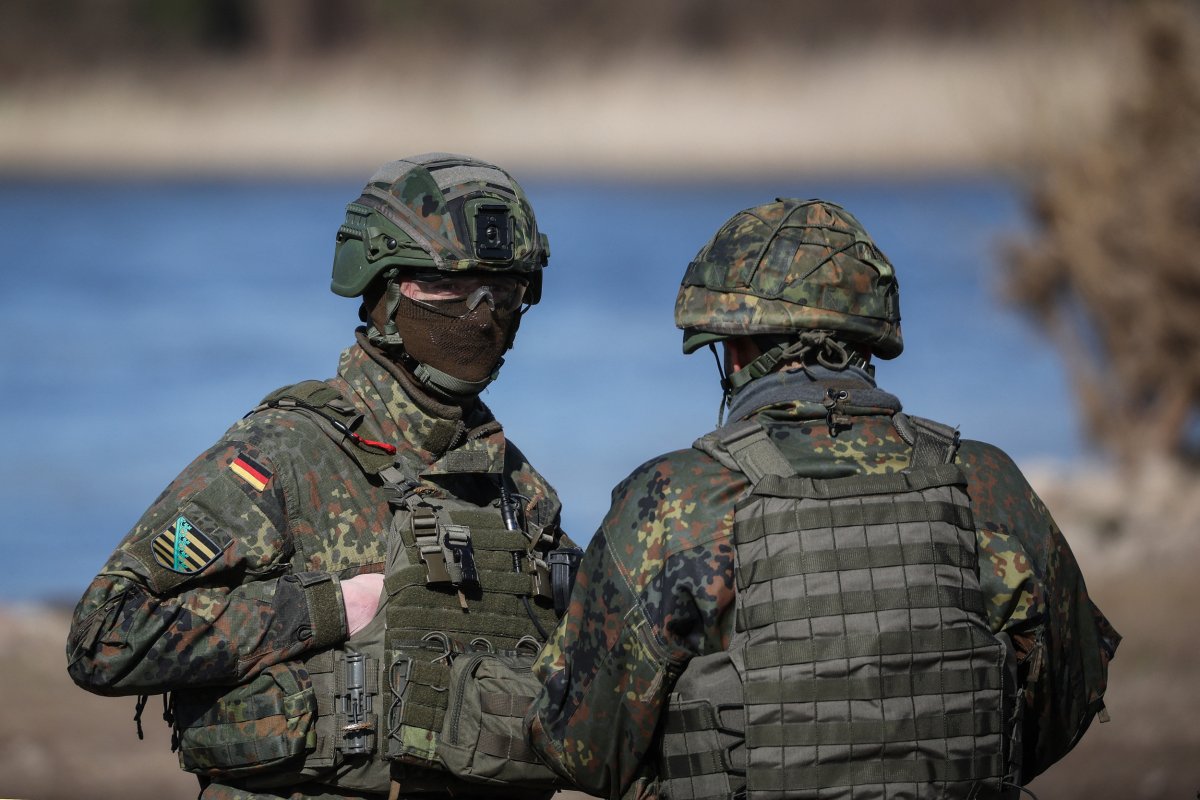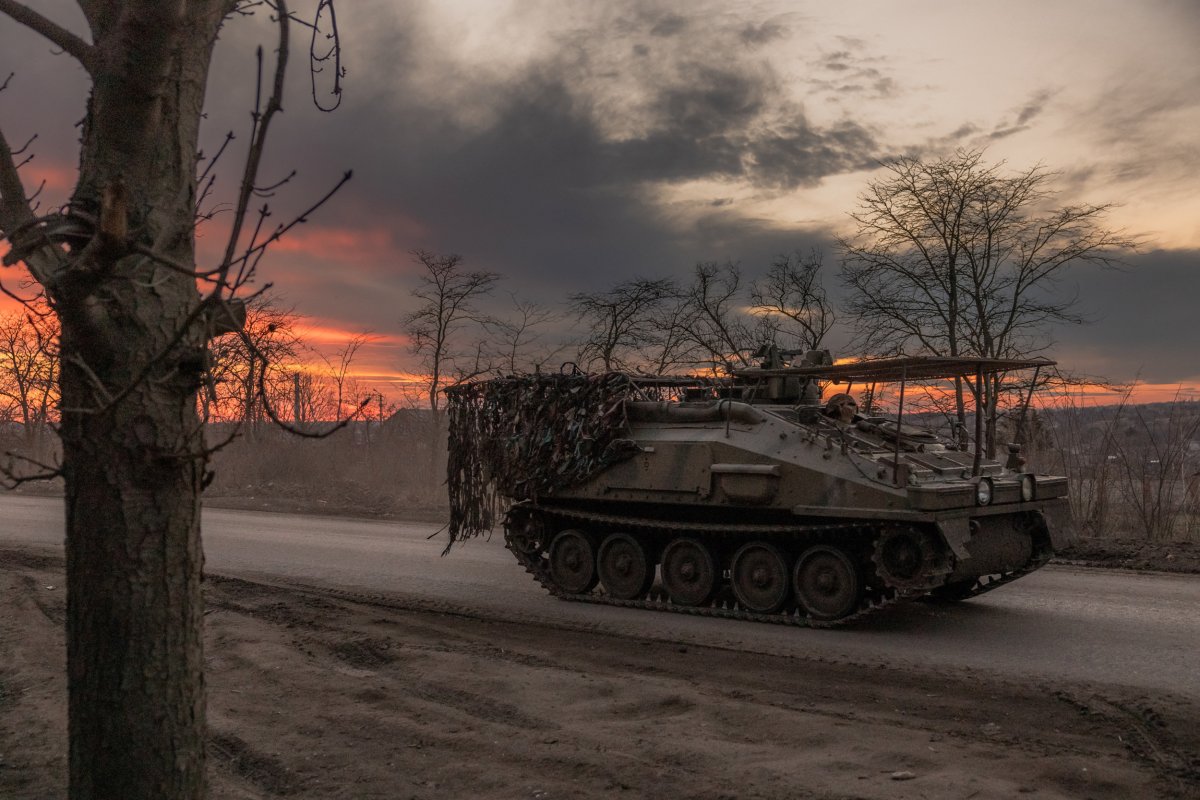America's permanent representative to NATO has stressed that the U.S. and its transatlantic partners are preparing for a Russian expansion of its war on Ukraine into allied territory, though she has stressed that such a threat is not "imminent."
U.S. ambassador to NATO Julianne Smith told reporters at a briefing on Tuesday that Russia remains "the pre-eminent threat that we're grappling with," though added: "We do not see an imminent threat to NATO territory."
"NATO is not sitting on its hands," Smith added. "It's not waiting for any possible contingency. Instead, it's preparing for all contingencies."
Newsweek has contacted the Russian Foreign Ministry by email to request comment.

NATO officials and leaders—especially those sitting along the alliance's eastern frontier with Russia—are increasingly warning that Moscow poses a direct threat to the Western bloc, suggesting there is serious danger of a larger war within the coming decade. A Russian victory in Ukraine, they have said, will buoy Moscow and encourage further aggression.
Smith echoed such concerns on Tuesday. "We have also seen many times in history where if a dictator is not stopped, or an authoritarian leader, they keep going," she said, referring to Russian President Vladimir Putin. "That's why it's so important that we all help Ukraine push Russia out of its territory and end this unprovoked aggression."
"Because if they do not succeed, of course, the concern is that Russia will feel compelled to keep going," the ambassador added.
The U.S. does not, however, feel that a Russian threat to NATO is immediate.
"We are not signaling to anyone that war is imminent," Smith said. "We look for indicators and warning," Smith added, noting the repeated and detailed warnings issued by Washington, D.C., in the lead up to the Russian invasion in early 2022.
"We monitor the situation regularly, as you might imagine, to look for other indicators and warnings that Russia is preparing to do something above and beyond what it's doing in Ukraine."
"Right now, we see Russia all in and engaged with this unprovoked war of aggression inside Ukraine. But we do not have indicators or warnings right now that a Russian war is imminent on NATO territory, and I really want to be clear about that."
"I don't want to give our friends in the Baltic states the impression that somehow war is coming to NATO territory overnight," Smith added, acknowledging the repeated warnings from NATO's eastern members. "We take it seriously, but we do not see this to be an imminent threat."
With Ukrainian troops on the defensive after more than two years at war, Western nations are seeking to reinvigorate its military and continue political backing for Kyiv while grappling with pivotal domestic elections and economic strains.
Ukrainian President Volodymyr Zelensky and his officials are pressing their Western partners to maintain and expand support. The president said in March that Ukraine expects a major new Russian offensive this summer and warned that Moscow success would imperil Western nations.

"At the moment, it's us, then Kazakhstan, then Baltic states, then Poland, then Germany. At least half of Germany," Zelensky said. "This aggression, and Putin's army, can come to Europe, and then the citizens of the United States, the soldiers of the United States, will have to protect Europe because they're the NATO members."
As NATO nations look for new ways to sap momentum from Russia and bolster Ukraine, some leaders—prime among them French President Emmanuel Macron—have even raised the prospect of deploying allied troops on Ukrainian soil.
Smith said the U.S. does not back such an effort.
"The US does not support sending troops to fight in Ukraine; we've been very clear about that," she said. "We are not interested in becoming party to this conflict, but we do want to support Ukraine as it defends itself against Russian aggression."
Uncommon Knowledge
Newsweek is committed to challenging conventional wisdom and finding connections in the search for common ground.
Newsweek is committed to challenging conventional wisdom and finding connections in the search for common ground.
About the writer
David Brennan is Newsweek's Diplomatic Correspondent covering world politics and conflicts from London with a focus on NATO, the European ... Read more
To read how Newsweek uses AI as a newsroom tool, Click here.








